United Kingdom (London)
Agriledger is turning the supply chain upside down. Now, smallholder mango farmers in Haiti can sell their produce directly in the US. No intermediaries. None. Zero. It is their mango all the way.
If you were to judge a book by its cover or, in this scenario, a company by its website, you might think that the Agriledger team accidentally shouted ‘Revolution!’ after one energy drink too many at their last hackathon. Nothing could be further from the truth. This ground-breaking initiative just might bring about the next agtech revolution. And, when it does it will change current power structures in very significant ways, pulling the carpet out from under the feet of those with the privilege to take risks.
Before looking at Haiti, where Agriledger is implementing its first transparent agricultural supply chain since 2019, let’s introduce the protagonists.
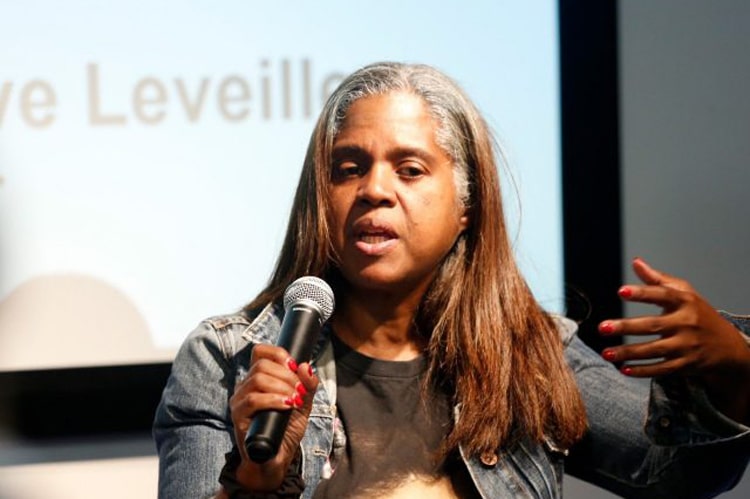
The CEO. The person spearheading this adventure is Genevieve Leveille, born in Haiti. She has worked for several large, corporate banking institutions, has a Six Sigma Black Belt in process improvement and loves food (“If you eat food, you are involved in agriculture”). She is also the vice-chair for techUK Distributed Ledger Technologies, (or DLT for short). Indeed, Leveille knows her technology, but more importantly, she knows how to put it to good use.
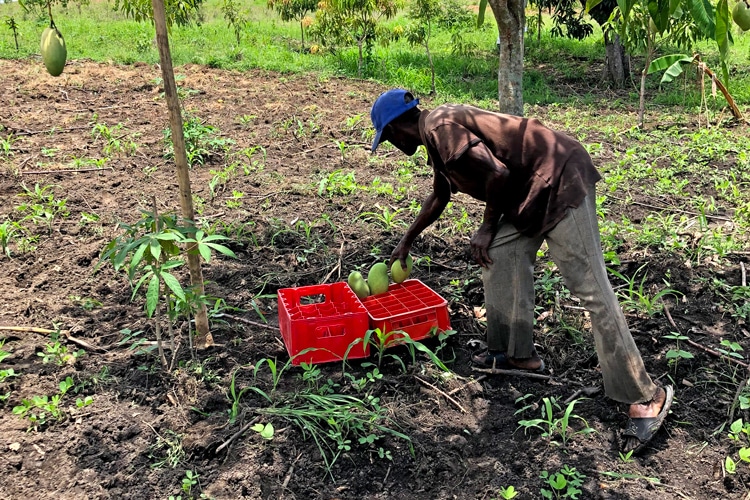
Farmers are, as Genevieve Leveille so poignantly puts it, “the first entrepreneurs”. “And we forget,” she says. “We talk about seeds, we talk about growth,” but we never give enough credit to farmers because today’s supply chains, more often than not, cut them out at the local market level. But what if you cut out the middleman instead? “People like to talk about the middle man,” says Leveille. “‘Oh, he’s taking too much!’ But he’s got the most risk. He’s got the risk that the farmer is not going to deliver, he’s got the risk that the other guy is not going to pay.” Agrildeger’s chain of digital ledgers changes this dynamic. The middleman becomes a service provider to the farmer. Service: count my mangoes and make sure they are fit for US agricultural standards. Service: transport them to the US and sell them to the highest bidder. But the mango (and the risk) belongs to the Haitian farmer until it is sold to the US supermarket. Higher risk? Yes. Higher gain? Absolutely. More on that soon.
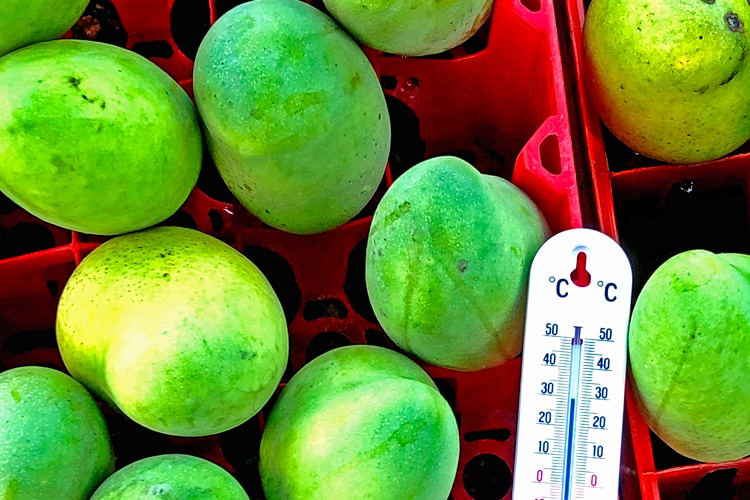
Technology. People may say “Kleenex” when they mean tissue and they may say Blockchain when they mean Distributed Ledger Technology. What matters is how it works – and here is how: Every block is a record of transactions, a ledger. These digital ledgers, or blocks, are distributed along a chain, for example, a supply chain. Here’s a scenario: A farmer drops off 500 mangoes at a collection point, where they are counted. She shows her ID and those 500 mangoes are registered (digitally) in her name (ledger/block 1). Fast forward to the end of the chain. The consumer scans a QR code sticker on the mango at the supermarket and, in the most detailed of cases, can learn that it was delivered from the collection point to Port-au-Prince on May 1st (ledger/block 2), that it arrived in the US one week later (ledger/block 3), and that it was sold to her supermarket the same day for US$ X (ledger/block 4). Who also knows all of that? The farmer!
Transparency. That’s the beauty of DLTs. The mango farmer could potentially track her mangoes in the same way you track a FedEx. This is why Leveille calls it “clear trade” (which she prefers to Fair Trade because it empowers the farmers and gives them access to new markets). She also prefers the term “value chain” to supply chain because the farmer, not the consumer, is the focus. Value is added to the mangoes as they cross seas and borders. When they finally sell at the destination market, an SMS is sent to the farmer’s phone notifying her of the transaction.
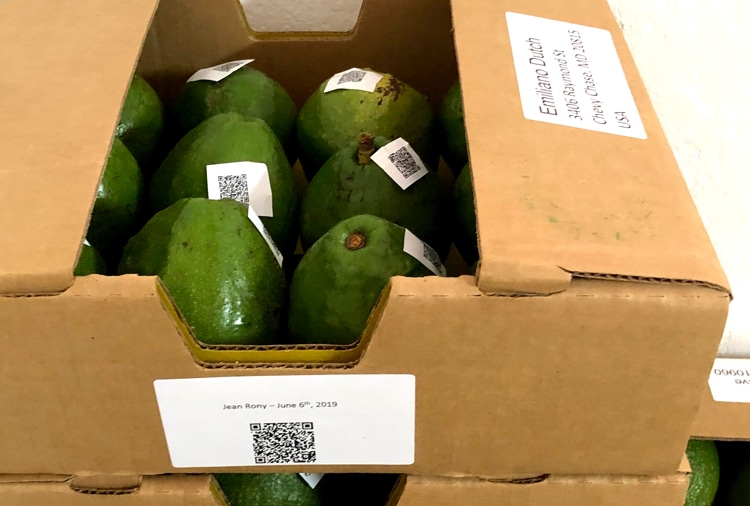
Identity. If the information recorded in each digital ledger isn’t trustworthy, the whole chain collapses. How can the farmer trust that her mangoes were really sold for x amount or that half of them didn’t sell because they got damaged during transport? Here the D in DLT is very important. These ledgers are distributed. There is no longer a central database that could be hacked or manipulated or whose information could be withheld by one powerful private entity. Every farmer, provider, mango and mango crate get a unique ID or a QR code sticker to be processed at every step (block) of the way. The person with the scanner in hand can only add data to that specific ledger, and each time they do their ID is also logged. This is what Agriledger’s DLT does, it provides the digital infrastructure to record information that the farmer (and everyone along the value chain) can trust. “It is a tool, a building block to achieving trust and achieving a more equitable world that everyone can participate in without being present,” Leveille reaffirms.
Empowerment. And what do you do with trustworthy data? For once, a rural farmer (in Haiti) is now able to make informed decisions, demonstrate solvency, go to the bank and get a loan. But not only the farmer… Potentially everyone along the chain can make better decisions. The QR code on the fruit could inform the consumer in the supermarket that 30% of the retail price goes to the Haitian farmer. One day, it could also inform them as to its carbon footprint. Imagine being able to know that the extra dollar that you pay for a mango actually goes to the producer and to a carbon neutral shipping company.
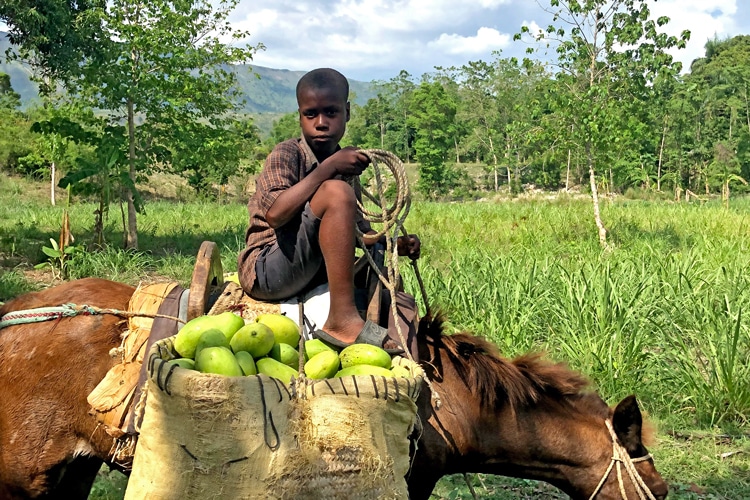
Reality. Haiti from 2019 to today. Agriledger collaborates with the Haitian government to recruit and educate local mango farmers about the new value chain at their disposal while solving technological and logistical problems on the ground. Every transaction needs to be digital and verified. Nevertheless, and despite the pandemic, the first shipment to the US left Port-au-Prince on 1 May 2020. By the end of June 2020, they had serviced 43 farmers and sold 23,000 kilos of mangoes, says Leveille. They sent 224 SMS letting those farmers know when their goods had arrived at Port-au-Prince, when they were loaded onto the boat and when they had been sold. The database, at that point, had registered 700 new farmers interested and Agriledger was looking to increase that number by 20% each month. And there is more good news: participating farmers earned seven point five times what they did before, selling to a middleman. 7.5x!
Future. Once the trouble shooting phase is over, Agriledger’s Haitian mango DLT will become an open source, available to anyone who dares to tackle the logistical mayhem on the ground at the beginning. But consider its potential. It can be applied to literally any “chain”. Think art, think soy, think vaccines. Leveille is thinking “silk road”. She would like to map the value chain from silkworm farmers to garments sold on high streets. And as her track record shows, she’ll probably do it – sooner rather than later.
AtlasAction: As crypto currencies have shown, DLTs will become more important not only in the supply chain context. Understanding the technology better empowers the user. To keep up with the latest news, follow Agriledger on Twitter.
Bio
Lena organises the editorial team at BCN Més, a Barcelona-based publication that focuses on independent, slow journalism.
Project leader
Genevieve Leveille, founder
Support the Atlas
We want the Atlas of the Future media platform and our event to be available to everybody, everywhere for free – always. Fancy helping us spread stories of hope and optimism to create a better tomorrow? For those able, we'd be grateful for any donation.
- Please support the Atlas here
- Thank you!

